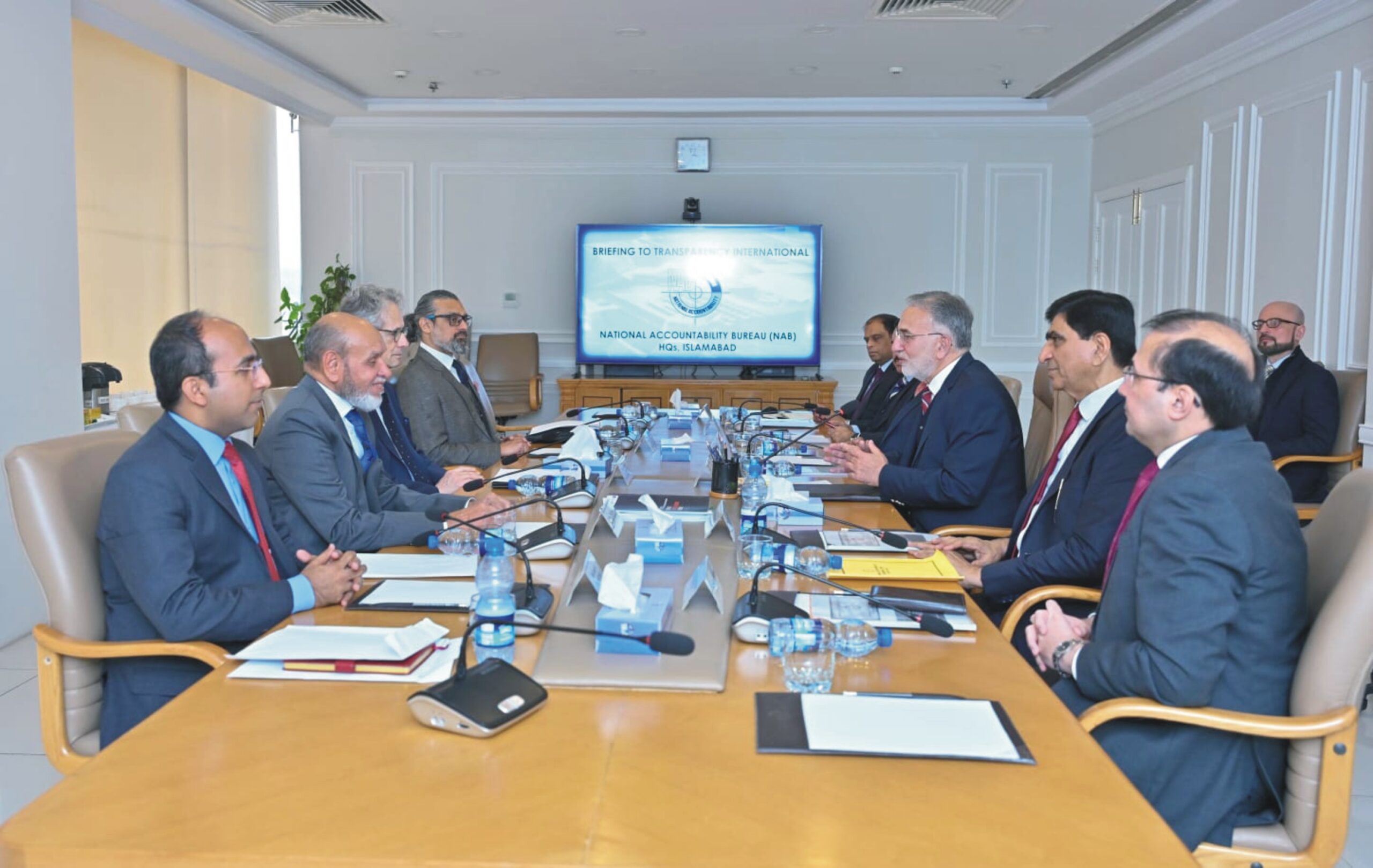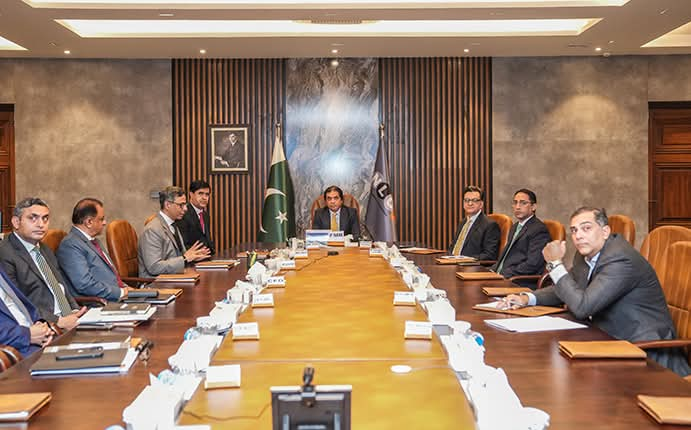Lust for power desists politicians to perform their core duty of serving the nation
By Amjad Mehmood
—Political chaos is at its peak and taking over the nerves of the nation. All political parties are indulged in power politics sans the care of public welfare and interests. Every passing day is adding more to the masses’ frustration and vulnerability. Fakeness, propaganda, cross-accusation, and whatnot are happening all day and night. The economy has collapsed and just breathing on the vent borrowed from the IMF and so-called friends states. Society is leading to the worst form of polarization. Political and religious disarrays are leading to social collapse. Amid all this distressing situation the judiciary, army, and media had the opportunity to play a constructive role for the sake of the country but unfortunately, these institutions are also facing a kind of in-house provocation.
Real democratic societies and countries which have visionary political leaders are making their way to the epitome of success. A little political sense and care of public can emerge “Shining India” in the regime of a fascist leader Narendra Modi. Political will, focused and consistent policies can turn Bangladesh into Asian Tiger with an ever-growing GDP. Even in some of the monarchs including the Kingdom of Saudi Arabia, people have some quality of life and access to all essentials even if their freedom of speech is compromised. On the other hand, people in Pakistan are unfortunate enough to taste the charm of real democracy, sincere political leadership, quality of life, and access to basic necessities including justice, opportunities for earning, shelter, health, and education.
Let’s have a candid review of some known political parties in Pakistan and their role in contemporary politics.
Pakistan Tehreek-e-Insaf (PTI)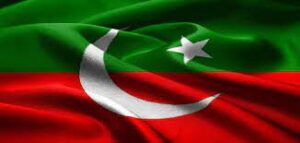
Cricketer turned politician, Mr. Imran Khan launched his political party in 1996 with the sole motto of provision of justice to the common man. Until 2011, he was a minnow in Pakistani politics. To dent the two parties’ politics in Pakistan, the military establishment eyed Imran Khan as an alternative and started to fuel his politics by providing all-out support. The establishment was able to give a thin majority to PTI in the general election of 2018 when an RTS system was allegedly managed. In July 2018, Imran Khan’s dream came true to become Prime Minister of Pakistan and formed a coalition government. Mr. Khan’s government had unprecedented support from the military establishment and the mantra of ‘one page’ sounded everywhere. The exceptional support from the judiciary to Mr. Khan’s government was another feather in cap and this support to PTI is still unshaken.
The nation tied high hopes from his government as Mr. Khan memorized the concept of a welfare state to the public for years. By trusting Imran Khan’s claims and waiting for the new dawn, people started to feel the heat otherwise. The end of this ‘new’ venture was not rosy as PTI and the establishment both have much to say in code words against each other. Mr. Khan’s government was ousted as a result of a ‘vote of no confidence’ motion in April 2022 initiated by the Pakistan Democratic Movement (PDM), an alliance of opposition parties. Imran Khan linked this movement with an international conspiracy and alleged the opposition parties and military establishment as part of the ‘big game’ against his government. He used social media power to build his aura as a true statesman and bulldozed all opponents with his ‘self-established’ realities. Mr. Khan nowadays lectures the nation on ‘civil-supremacy’ through his public speeches and interviews however; during his regime, the highest number of ex-military officers were appointed to top slots of civil organizations. He admitted that he was a ‘powerless’ prime minister and used to get the help of military spying agencies in political matters. PTI lovers follow his words considering it a ‘religious duty’ and do not spare opponent voices. Mr. Khan is enjoying this unique opportunity to the fullest. He is steadily building the PTI image as the biggest ‘anti-establishment’ party in the country. In totality, Mr. Khan intends to cease the military role in Pakistani politics by asking them to perform a role again at his behest.
Pakistan Muslim League (Nawaz) (PMLN)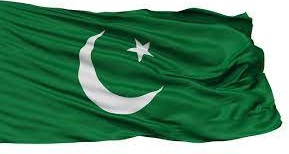
The son of a Punjabi industrialist Mr. Muhammad Sharif, supremo of PML (N) and three times Primer Minister of Pakistan, Mian Muhammad Nawaz Sharif joined politics under the guardianship of the military establishment and was ousted all three times from premiership without completing his tenure. In 1981, during military dictator General Zia’s regime, he became the finance minister of Punjab. In 1990, Nawaz Sharif led the conservative Islamic Democratic Alliance and became the 12th prime minister of Pakistan. His government was ousted in 1993 when President Ghulam Ishaq Khan dissolved the National Assembly. He then served as leader of the opposition to the government of Benazir Bhutto from 1993 to 1996. Nawaz Sharif returned to the premiership under the title of his party as Pakistan Muslim League (N) (PML-N) with a two-thirds majority in 1997 and served until his removal in 1999 as a result of General Musharraf’s military coup. He was jailed first and then tried for a plane-hijacking case and later exiled for more than a decade. In 2011, he returned to politics and led his party to victory for the third time in 2013. He was again removed from the prime minister slot as a result of a controversial decision made by the Supreme Court of Pakistan in 2017.
The hate and romance story between PML (N) and the military establishment is an open secret. PNL (N) also has credit for caustic ties with the judiciary. After Mian Nawaz Sharif’s disqualification in 2017, his younger brother MianShehbaz Sharif became the party president. His services as Chief Minister of Punjab were admired by opponents too however, his political style and stance never got public applause compared to his elder brother. He always advocated good relationships with the establishment and believed in performance instead of head-on conflicts which ultimately resulted in the fall of the government.
After his disqualification in 2017, Mian Nawaz Sharif chanted the slogan of “Respect to Vote ” and publicly named the military leadership for conspiring against his government. Consequently, he faced serious hardships to a possible extent however, his younger brother, the sitting prime minister of Pakistan, managed to turn the table in his favor as a result of emerging conflicts between the establishment and Imran’s government. Pakistan Democratic Movement (PDM), a grand alliance of the majority of opposition parties and invisible support of establishment paved the way for fall of Mr. Khan’s government in April 2022. PML (N) swiftly retrieved from the anti-establishment slogans and made a deal of compromises. Their journey to power and comfort is refueled and they start to fly again without fins. During their various tenures, PML (N) launched mega projects mainly related to infrastructural development such as motorways, underpasses, overhead bridges, roads, and a few industrial zones. Within Punjab as the chief minister, Shehbaz Sharif has made significant reforms and developments in the health and education sectors. PML (N) takes the credit for launching the millions-dollar mega project of China Pakistan Economic Corridor (CPEC) in Pakistan.
During the last 4 years, media, social media, and courts in their decision-less comments reminded the public that the Sharif family was involved in large-scale corruption. Panama scandal, Avenfield apartments in the United Kingdom, and money laundering, such cases were lodged in the National Accountability Bureau (NAB). A Joint Investigation Team (JIT) investigated the cases, a monitoring judge was appointed on cases by the supreme court, and resultantly former prime minister Nawaz Sharif along with his daughter were convicted. MianShehbaz Sharif, his son Hamza Shehbaz and many other prominent PML (N) leaders were arrested by NAB and remained in custody for a longer period. The party is re-installed at the same position with controlled power from where it was removed in 2018.
PML (N) is seriously lacking to catch political momentum with a solid and blunt stance for their future politics. Historically, they remained successful in grabbing the vote and support of the business community and middle-class people of society. Mian Nawaz Sharif has the aura of a political leader and his presence in public helps the party to mobilize the voters. To some extent, Maryam Nawaz has shown her magnetic value in public to attract voters; however, the doldrums between pro-establishment and anti-establishment are utterly damaging to the party.
Pakistan Peoples Party (PPP) 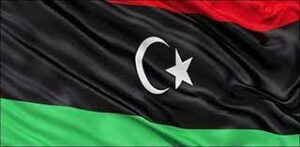
A rebel against his ‘political daddy’, military dictator General Ayub Khan, launched a political party following the socialist ideology known as the ‘Pakistan Peoples Party’ in 1967 at Lahore. The like-minded revolutionaries from all over Pakistan under the leadership of Mr. Bhutto gave hope to the nation for a government that truly represents the meaning of democracy. The slogans of equality, government of common men, and empowerment of the public boosted their popularity to an apex level. In a short span, Zulfiqar Bhutto became a national leader and was later known as ‘Quaid-e-Awam’. He was born in a feudal family in Sindh and studied at the University of California and the University of Oxford. He trained as a barrister at Lincoln’s Inn, before entering into Pakistani politics. He remained a cabinet member of President Iskander Mirza and was assigned several ministries during President Ayub Khan’s military rule. He also served as foreign minister in 1963. Mr. Bhutto served as the fourth President from 1971 to 1973, and later as the 9th prime minister of Pakistan from 1973 to 1977. The Pakistan Peoples Party introduced land reforms, nationalization of industries, and administrative reforms to reduce the power of the bureaucrats. Pakistan’s current constitution is also provided by Mr. Bhutto’s government in 1973. He is also credited as the pioneer of Pakistan’s nuclear program. Mr. Bhutto was awarded a death sentence by the Supreme Court of Pakistan for authorizing the murder of a political opponent and was executed on April 04, 1979. This judgment of the Supreme Court of Pakistan was later termed as the judicial murder of Mr. Bhutto.
After Zulfiqar Ali Bhutto, the party was led by his daughter Mohtarma Benazir Bhutto who was later elected twice as prime minister of Pakistan from 1988 to 1990 and then from 1993 to 1996. His son-in-law and Benazir’s husband, Mr. Asif Ali Zardari, took the charge of the party as de-facto leader after the sad assassination of Benazir Bhutto on December 27, 2007, at LiaqatBagh Rawalpindi, and later he became the 11th President of Pakistan in 2008. After the general election of 2008, PPP was able to form a coalition government and Mr. Yousaf Raza Gillani was elected as the prime minister of Pakistan. Currently, Mr. Bilal Bhutto Zardari is the Chairman of PPP and serving as a foreign minister of Pakistan.
A party launched in the name of ‘people’ never risked giving the party’s command to an ordinary party leader or worker. Once the largest party in Pakistan has now squeezed to Sindh province only. Mr. Asif Ali Zardari is considered a ‘guru’ of make and break in contemporary politics of Pakistan. His negotiation skills in politics have registered several political wonders in recent years and the party remains relevant for the federal government. Once known as an anti-establishment party, having a rich legacy to fight against dictatorship and despotism has turned into the role of a ‘caddy boy’ of the establishment in Pakistan.
Smaller in Size, Relevant & Opportunist Political Parties
There are several other small-scale regional, religious and nationalist parties that are equally relevant in Pakistani politics and sometimes become utterly significant in the make and break of governments. MuttahidaQaumi Movement (MQM), Jamat-e-Islami, Pakistan Muslim League (Q), JamiatUlema-e-Islam (F), Awami National Party (ANP), Balochistan Awami Party (BAP) are a few prominent names amongst these parties to consider for their vital role which mostly used for bargaining to form provincial and federal governments. Their core agenda revolves around getting a share in power more than volume and in most cases, they remain successful. MQM, PML (Q), and JUI (F) have exceptional guts for making political deals. These small parties are not more than a ‘Stepney’ of the establishment in Pakistani politics. Democracy, political values, and services to the nation and country are irrelevant terms for these political parties.
There are many developed nations and countries in the world who have secured prestige and recognition as a result of their honest political leadership. In recent years, Jacinda Kate LaurellArdern, the prime minister of New Zealand is a glaring example to quote as she took the charge of the office at the age of 37 and this young politician put her country on a fast track of advancement with commitment and hard work. The million-dollar question is, can Pakistani politicians come out of their ego shells and state of polarization to show a little care, honesty, and commitment to turn the destiny of nation and country?
